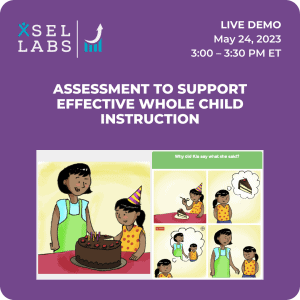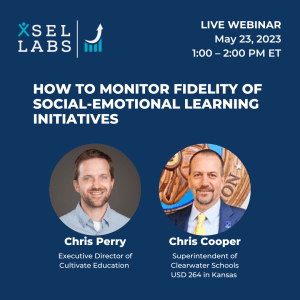From Cookie Cutters to Cake Batter:
2 Recipes for Successful SEL Implementation
Sometimes, I hear people complain that social and emotional learning (SEL) takes a “cookie-cutter” approach. This complaint invokes images of monotonously scripted lessons delivered in the same way in all settings regardless of the community’s needs and the students.
I don’t think SEL programs are cookie cutters, but if you are worried about cookie cutters, there is an alternative: cake batter.
What?
Recipe 1: The Traditional Approach
I recently enjoyed attending an SEL talk day in a school district in southern Michigan—the event brought together educators from the region to share information about their social and emotional learning initiatives. The work—and evidence of its benefit to students—was inspirational.
Leaders of the event (looking at you, LN, MC, and EA!) drew a parallel between SEL initiatives and cakes—cakes come in all kinds of flavors, with different frostings and toppings. Cakes are made with individual preferences in mind and an eye toward specific contexts (birthday parties and weddings, for example). But they’re all cakes!
Her point was that educators seeking to mount SEL initiatives have a lot of choices about what “ingredients” they use and what “flavor” of SEL initiative they end up making. Not cookie cutters. Cake batter.
Recipe 2: An Evidence-Based Approach
Evidence of cake-baking abounds. At the SEL talk day alone, educators described initiatives that, while different in form, all target the same goal. For example, one district implemented positive behavior interventions and support effectively for years. Then, they decided to implement high-quality morning meetings and other instructional practices to teach social and emotional learning skills.
Another used a universal SEL assessment to guide an evidence-based universal SEL program. They also used the assessment data to direct extra social and emotional support to students who needed it most. Follow-up assessment data showed a lot of student progress.
The striking thing about these examples (and the vast majority of energetic and effective SEL initiatives everywhere) is that they reflect adaptations of effective practices in ways that fit the local need. Rather than forcing educators or children into a rigid set of routines (see cookie cutter), these creative educators are integrating promising and effective practices into daily routines that make sense for the local community. That’s cake batter.
Most districts will benefit from mixing a cake to their own needs and preferences. There’s little question that doing so fosters a sense of ownership that is otherwise difficult to achieve.
But a cake batter approach is not risk-free. In adapting SEL programs and practices to meet local needs, the modified version of those programs and practices may be ineffective. Imagine, for example, a district that decided to implement morning meetings as a way to practice SEL skills and create a positive climate. Imagine a future where teachers were not supported in “doing” effective morning meetings. Morning meetings are likely to be inert in this district rather than a rich opportunity to learn and connect.
What Recipe Is Best for You?
I’m not advocating cookie cutters. But I am advocating care in choosing the cake ingredients to select ingredients that work and supporting teachers to implement them in ways that will be effective.
Whatever flavor cake you create, it is wise to integrate assessment into your SEL practice. Assessment supports effective techniques when it directs educators’ energies to make the most difference and shows them whether those efforts are leading to growth.
So if you want to mix up some delicious cake batter, go for it! Just make sure to measure whether it’s working to change the recipe as needed.



